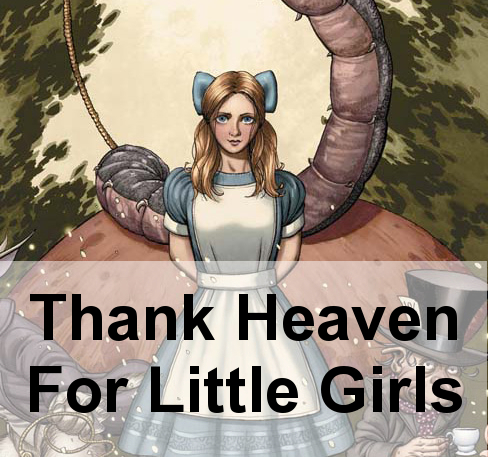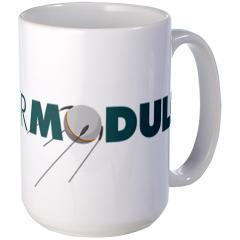Warren Ellis's Blog, page 73
March 17, 2012
Recent Crap We Have Made
March 16, 2012
GUEST INFORMANTS: Is Magazine Publishing Really Screwed?
So, every now and then, I ask my friends and acquaintances, all of whom are eight times smarter than me, a very obvious, general, linkbaity kind of question, so that I can get a broad spectrum of their thinking. A couple of weeks ago, I asked a few people this:
Is magazine publishing really screwed?
If you follow @themediaisdying, you might think so, as it's really just a rolling obituary of print magazines. And yet Cosmopolitan claims a hundred thousand paid digital subscriptions. And people are talking about a resurgence of niche magazine publishing. Is the latter just the dead cat bounce of print magazines? Is the former statement just PR bullshit? How does this shake out?
And this is what they said.
MARK MILLAR is a writer, producer, and the editor of CLiNT magazine:
I think every industry has a death fetish. It's the same reason we watch hospital dramas and cop shows. We're fascinated by the concept of our own extinction and so we flirt with it, writing and hypothesising it into existence even when it usually fails to show up. It's happening in papers and magazines right now and e saw it happening in comics twenty years ago. When I first started kicking around on the fringes of the 90s scene, everybody was convinced that video-games were replacing us. They saw an industry downturn and randomly selected a thriving, though quite distinct business as our evolutionary replacement and had something close to a cardiac arrest. I never really bought this theory. It made no more sense than Reebok replacing cheese, cheese sales going down in 1994 when Reebok profits were going through the roof. Decline was happening because of low quality books and over saturation of the market. You have to step back and look at the overall picture before anyone does a Chicken Little.
Twenty years ago you could sell every major magazine in Britain on a single news-stand. Now you couldn't have them all into even the biggest WH Smith's. There's over-saturation and too many imitators of books we didn't especially need in the first place. In the short-term, a cull looks like extinction, but step back and look at the broader picture and you see it's just the necessary boom and bust of a luxury high-price product in the worst economic depression we've had since Hitler was tipped as Time Magazine's Man of the Year. Is publishing evolving? Absolutely. I read everything I can get my hands on and half of what I read is on my iPad. But until they invent an iPad that can be safely perused in the bath without fear of a high voltage finale I'll still be leaving through Empire, the Spectator, New Scientist and, of course, Clint in the dead-tree format we know and love. I think circulations will be smaller and more specialised in the future, just as High Street giants are tumbling to make way for the return of the lean, mean indie stores. But as a consumer that's no bad thing. I like my niche being catered for.
VERONICA SO is the editor and publisher of L_A_N magazine:
I've been peer pressured into preparations of a digital release of the upcoming L_A_N 3 but in the end all I really want is the smell and touch of my content printed on paper. I've been made to feel like an idiot before for having to deal with all the print preparation and fundraising, shipping, storage and other expenses involved, but I get mixed signals. People who are introduced to L_A_N melt with pleasure when they encounter the physical edition. 'It's huge," "it feels great" all sorts of orgasmic comment I'd never get from sending them a pdf. This tells me something but i haven't figured out if it means I'm a zine dinosaur or even worse a nostalgic sap. For an editor of a magazine that's supposed to write coverage for futurists, celebrate technology and cutting edge design, it makes me a little bit worried, but only like 0.3% worried. Also, I hear a rumor that Google has posters up in its offices that say 'All My Shit's Online." FUCK THAT!
WILL WILES is the deputy editor of ICON magazine and the author of the excellent CARE OF WOODEN FLOORS:
This is obviously a question I spend a lot of time thinking about and I have a lot of detailed opinions about it, which I'll try to put as snappily as possible.
First, as William Goldman said, "Nobody knows anything" – this is all pure conjecture and handwaving seasoned equally with wishful thinking and fear in equal measure. What follows is all "I think", "I suspect", "in my opinion" etc.
Many magazines continue to make money – others make losses that entirely acceptable to their owners because either they're on a non-profit/charitable footing or because there are other, indirect benefits to owning that magazine. So a lot of magazines are fairly secure for the time being.
Somewhat more troubling is the decline of distribution outlets – IE shops that sell magazines. But that can be compensated for by the marketing potential of the internet.
On to your actual question – is magazine publishing screwed? – I think yes, the business model itself is increasingly subject to an existential threat. That business model is the advertising-driven print magazine, and the number of those is going to drop. But there will continue to be magazines, there will continue to be print magazines, there will continue to be money to be made in magazines and there will still be jobs to be found in magazines. What we don't know is how many/how much of any of those things.
First, there will be those magazines that endure in the "traditional" magazine form – these will mostly be prestige items, they will be individually pricey (£5 and up), and will exist because they are luxury objects that look good on coffee tables. So that's fashion magazines like Vogue and design/lifestyle titles like Monocle. There will also be print news/analysis titles that will endure on sheer quality of content – The New Yorker, Private Eye. There will be print titles that endure because they operate on a philanthropic basis – Cabinet, Harpers.
There will also be boutique, superniche & one-off magazines and zines made by people using services like Magcloud just for the sheer pleasure of making something, an object, with no thought of profit. Some of these will make money almost despite themselves. Like Strange Light.
But the "mainstream" of magazine publishing will move online, mostly to tablet devices, e-readers and smartphones. Indeed the future definition of "magazine" might be a periodical formatted to those devices – as opposed to desktop computer & laptops, rather than as opposed to print. This is because I think revenue will have to come increasingly from subs rather than ads – when people buy a print magazine they expect to see ads in it, but people are I think less happy about seeing ads on their ipads, kindles whatever. And when the mainstream of magazine discourse is digital, titles might move digital-only simply because that's where the action is, not because they have to for commercial reasons but just because that's where the action is, that's where the agora is.
(Relevant to this: As recently as three or four years ago, people I spoke to as a magazine journalist wanted to be in the print edition above all and were a bit let down if they found their story or contribution was online only. Now people are miffed if they're not online. The prestige is shifting.)
Another emerging field is standalone works of (generally longform but also data) journalism being sold individually, outside the "magazine" frame – the Byliner.com or Kindle Single business model. This is a wonderful development, a potential boom in quality and quantity waiting to happen, but one that challenges magazines as a concept. Is this magazine publishing? No, not really, but it's publishing for journalism that until now has mostly appeared in magazines, and it has prosperity ahead. (Where it falls down is artfully combining words with photos/illustrations, one strength that mags in whatever form will a lock on for the time being. And a prominent reason why people buy mags in the first place.)
And the barriers to entry are lower. There will be Amanda Hockings in Nu Publishing and longform journalism. Which is exciting.
The biggest real danger is the emergence of monopolies – Apple and Amazon will hopefully soon realise that monopoly doesn't serve them well in the long term.
So the magazine publishing business is going to be transformed, maybe beyond all recognition, and household names will continue to go to the wall, but afterwards there will still be magazines, there will still be publishing, there will still be livelihoods to be earned and there will still be quality journalism. A few years ago I felt really pessimistic about magazines – now I feel quite optimistic, even excited, and keen to try some of these new tools.
(I think. I suspect. In my opinion.)
ABRAHAM RIESMAN is a journalist and web strategist.
The Importance of Sweatshop Employees (Like Me)
I'm probably not the most qualified dude to talk about the magazine industry's cost curves and price points and economies of scale and whatnot. However, I can give a grunt writer's perspective and say the following: there's always a place for magazines in a struggling writer's heart.
That may sound simply romantic, but it's not. Writing a cover feature for a magazine remains one of the — if not the — brass rings for a freelancer or young staff writer. Like, for real.
The blue-chip publications are, of course, ideal — your New Yorkers and New York Times Magazines and Wireds. And I don't suppose anyone has little fantasies about writing for the official Amtrak magazine (although, y'know what, I really shouldn't say such things in this economy). But even a spot in a smaller-market title is an insane boon to one's career/prestige/wallet, when one is starting out.
I dream of the day that I can write a cover story — or even just an internal feature. I want to go glossy. I'd literally do it for zero money, because it brings with it a hope that dollar-signs will be in my corneas in the not-so-distant future.
And I'm not alone. Journalism is an increasingly slave-labor-like process, but kids keep coming up hungry for it. I'm not saying that population can save magazines, but we're an important factor to remember in these discussions. As anyone at Foxconn can tell you, a cheap, desperate labor force is helpful for any industry.
NEIL CLARKE is the publisher of CLARKESWORLD magazine:
Using body count to determine the future is a sensationalist approach to analyzing the field. In the last decade, I've seen the same tactics employed in discussions about online publishing. The overwhelming majority of the online genre magazines that existed when I launched Clarkesworld (five years ago) are gone, but today, online/digital magazines are stronger and more respected than ever. In a sense, those early days were the Wild West. It was a new frontier with no one right way to succeed. It was evolution in action and the better approaches survived.
Courtesy of market pressures (increasing printing and postal costs, migration of advertising to the web, a broken distribution system, the convenience of digital publishing, etc.), traditional publications are being forced into a situation where they must adapt or wither. This isn't an industry that is culturally disposed to change. To survive, they must embrace the web, social networking, digital editions and all the associated expectations that come with them. Many are struggling. Many more will fail.
Do I think magazine publishing is screwed? No. It's evolving and that keeps things very interesting.
JEAN SNOW is the executive director of PechaKucha and the editor of THE MAGAZINER:
Is magazine publishing really screwed? This really depends on how you frame it, or what aspect of publishing you examine. Is print dead? No, it's certainly not, but it's in a state of flux. Anything that is disposable — think newsweeklies — becomes more and more unnecessary, faced with the speed and distribution of digital. But the explosion in indie titles shows that there still is a place for print. Think more in terms of a magazine issue as an "object," it needs to be something you want to experience in that way, whether it's because of an odd shape/format, the paper stock, etc. You're seeing the same thing with books — a lot of people are getting used to reading text-focused books in electronic form, but you're not yet seeing this transition happen (in any big way) with art and design books. You know, the kind of books that you want to enjoy on a visual level, and that you want to show to others.
On the digital side of things, there's never been a more exciting time to be a fan of magazines. Sure, there are certain platforms (like the Adobe digital publishing tools) that have taken off, but there's no set layout or format that rules the magosphere, it's still the Wild West. And you also have a growing set of easy-to-use (and cheap) tools that are popping up to give any budding creator the ability to create something that can look just as good as anything put out by the Big Boys.
Are magazines screwed? Fuck no. It's a virtual no man's land right now, and it sure is exciting to have front row seats on the whole thing.
###
Thanks to all.
March 15, 2012
GRAVEL Director Announced
It finally just broke on Deadline. My old friend Tim Miller, a VFX genius (mostly recently lauded for the credits sequence he shot for GIRL WITH THE DRAGON TATTOO), has signed to direct GRAVEL for Legendary Pictures, based on the GRAVEL books I created, as published by Avatar Press.
Note that this film has writers who aren't me. I can't say a lot more than that without giving some stuff away, but some of you will remember that the original plan was for me to write this film. Plans changed and expanded, and I was working on other things both announced and rumoured during the initial process on this film. My relationship with Legendary has grown since we made the initial deal a couple of years ago. All is good.
And I've known Tim for years. This is basically the best news.
Anyway, this is the end of what's been a fairly demented day, so I'm just leaving this here, and saying that I'm happy, and will doubtless expand on it all at a later date.
March 14, 2012
CLOSEDOWN: 4bidden
Some rather epic spookiness to close out with:
(actual act name is a witchhausy unicode disaster that may not survive posting:
I?????????????????????I )
Bookmarks for 2012-03-14
"Named the Red Deer Cave people, after their apparent penchant for home-cooked venison, they are the most recent human remains found anywhere in the world that do not closely resemble modern humans."
(tags:history )
GUEST INFORMANT: Leah Moore

Yeah, it is a really creepy song, isn't it? Sorry, the title just seemed to fit, to be honest.
Normally I steer a wide path away from the personal blog, just because I am likely to bore you all to tears about my son's milk allergy, or needlecraft techniques (I shit ye not), but today I will make a special exception for dear old Warren Ellis, who has pickled his remaining skull-tripes in cheap bourbon, and thus has asked me to guest blog.
Everyone knows fangirls rule the world, they pay for most of it. Drifts of Twilight cushions and Harry Potter scarves, Legolas action figures, obscure game character cosplay outfits, nyancat lunchboxes and kitten mittens. The world is literally awash with Things Girls Like. We are surely never further than 2m from a Hello Kitty.
So what is it about comics that's different? What makes comics suddenly this great thrusting phallus of masculinity?
Girls read comics, not just Manga either. Girls read superhero comics, indie comics, autobiographical comics, historical comics, literary comics, horror comics, romance comics and even just plain terrible comics. Girls are comic fans. They want comics aimed at them, or aimed not at them, or just comics that are good. They want all the same things male comic fans want. They want to be sold to, they want to buy the cold cast porcelain model of Rogue looking badass and put it on their shelf. They want Wonder Woman underwear sets and Wolverine stationery for the new term. Women are just as whimsical, gullible, romantic and fanciful as men. They are capable of grasping the finer points of all the weird freaky made up stuff that we all commonly know to be "ACCEPTED CONTINUITY." They will talk about costume changes and characterisation.
I know this because I have been around comics and comics fans for my whole life and I am also a woman. I have done nothing but sit at (largely empty) signing tables for ten years, watching all of the comic loving world go past, and at least half of those convention-going money-spending awesome-t-shirt-wearing people were women, if not more!
Times are hard all over, and nobody likes to point this out more than your average comics professional. We all know that work for hire is the best we can get. Creator Owned a delicious dream we might dare have if maybe a spouse won the lottery. We see characters rebooted at lightning speed, properties revamped, relaunched and resold-with-added-sketchbook-section. Comics is eating its own tail to try and survive the economic storm. We are all broke and wondering how to save our ailing industry, rescue our beloved characters and pay off our huge millstone-like mortgages which seemed such a safe bet at the time.
Is it just me that sees a possible idea forming between the last two paragraphs? The fan-girls, hell bent on spending millions on anything related to their chosen fascination. The ailing industry full of sad fan-boys, empty cash registers, and stories about big strong men staring at large breasted women through their ridiculous costume cut outs. No? Nothing?
Okay, well, let's say, instead of jumping in and writing comics designed to attract women readers (Minx comics discovered this is harder than it looks), how's about writing comics which don't actually put women off? How's about a bit less objectifying, a bit less sexualisation, a bit less pervy gusset shots and tit windows? Just a bit? Make some of the regular mainstream big name books everyone enjoys reading a bit less eyewatering and weird about women. That would be a great start.
If comics is to survive the financial turmoil we are all suffering under, it doesn't matter if it's paper comics or digital, trade paperbacks or floppies, it's about "ARE THE COMICS ANY FUCKING GOOD?" and "ARE WE SELLING THEM TO AS BROAD A MARKET AS POSSIBLE OR ONLY 50% OF IT?" If we continue to try and sell crappy comics to half the population based purely on what they keep in their underpants and nothing else then we are totally doomed.
What is required is an all hands to the pumps mentality. Action stations! Let's find some new blood, let's find some new ideas, new characters, and most importantly new readers kind of plan.
I honestly think that anyone who doesn't see women as a rich untapped potential source of ideas, or labour, or cold hard revenue must be delusional. Why should comics sit in a sweaty locker room of ignominy when novels and films and games skip about hand in hand with wealthy teenage girls? Doesn't that make comics feel a bit sad?
Even if all of this is not true, and that no amount of sprucing up our beloved industry can save it from oblivion, I know I'd rather have had a go at it first. Let's see if we can sort out more women in comics, or make the ones there are more visible and so induce more girls to get into it. Let's look at the content we are putting out, and see if we can do it better. Let's stop using the past as our only reference point and look forwards. Let's make whizzy super future electric digital comics, and deluxe overpriced editions, and dinky little collectible books and comics on all kinds of subjects, and educational comics, and controversial comics. We already know how, we are already doing these things, but let's try and do it better, and be less misogynist and prickish about it.
Right. Off to practice my French knots.
Leah Moore
Liverpool
March 2012
Leah Moore is the co-author, with husband John Reppion, of many excellent graphic novels, including RAISE THE DEAD, THE COMPLETE DRACULA and THE COMPLETE ALICE IN WONDERLAND (from which the above image was taken), and also the groundbreaking online comic THE THRILL ELECTRIC . You can learn more at their website . You can find Leah on Twitter @leahmoore . Thanks for this, Leah.
STATION IDENT: This Is Hep
March 13, 2012
CLOSEDOWN: Sun Drums
THREE PANELS OPEN: Esquivel Godlewski Cody
One of the most popular of last year's Three Panels Open was by Esquivel, Godlewski and Cody, with letterer Barajas. Sans Barajas, they're back again this year:

Eric M Esquivel is the author of Moonstone's "Blackest Terror" and "Thor: Unkillable Thunder Christ". Scotty Godlewski is the penciler for Boom's "Dracula: In The Company of Monsters" and "Codebreakers". Ryan Cody penciled Viper's "Villains".
Related: how to submit your own Three Panels Open .
FAQ 13mar12
The FAQchive is here.
sebastianburton asked: With all of these amazing books coming out at Image this year I was wondering if you had any new comic work other than that covered in your FAQs. Also, any interest in working with Annie Wu or Cameron Stewart?
No new comics work planned at all, right now. I kind of ran out of collaborators, for one thing — all of my friends went on to bigger and better things, and, as I drifted out of the mainstream again, artists stopped contacting me. Annie and Cameron are both very busy, and interested in other things.
(It's no wonder: I just used "thing" or "things" about a dozen times in the same bloody para. My excuse is that I am answering this just after having woken up. Or I'm exhausted from policing myself from not doing that for 90K words of novel. Take your pick. Or assume I'm stupid. I want to go back to bed and I do not care any more.)
inkcrash asked: Are you going to any cons this year? If there's a list somewhere that I don't know of that says this already, sorry for the silly question.
The only convention I'm attending this year is Kapow, in London, and I'm only going to be there for an hour, doing a Q&A on stage. I've known Mark Millar, the organiser, for many years. I couldn't get there last year, and when he asked me this year to do an hour's audience, I couldn't very well say no. It's only 90 minutes from my house, after all. Will probably be heading home right after.
You can email queries to warrenellis@gmail.com and I'll get to them when possible, or ask me on Tumblr.
Related articles
Who I Am And Where I Am (Jan 2012) (warrenellis.com)

Warren Ellis's Blog
- Warren Ellis's profile
- 5768 followers








